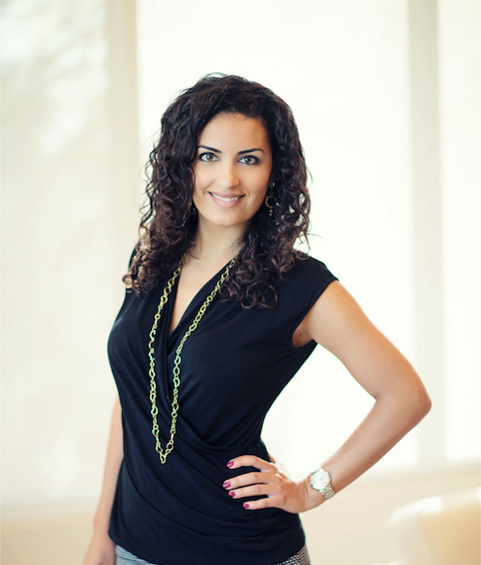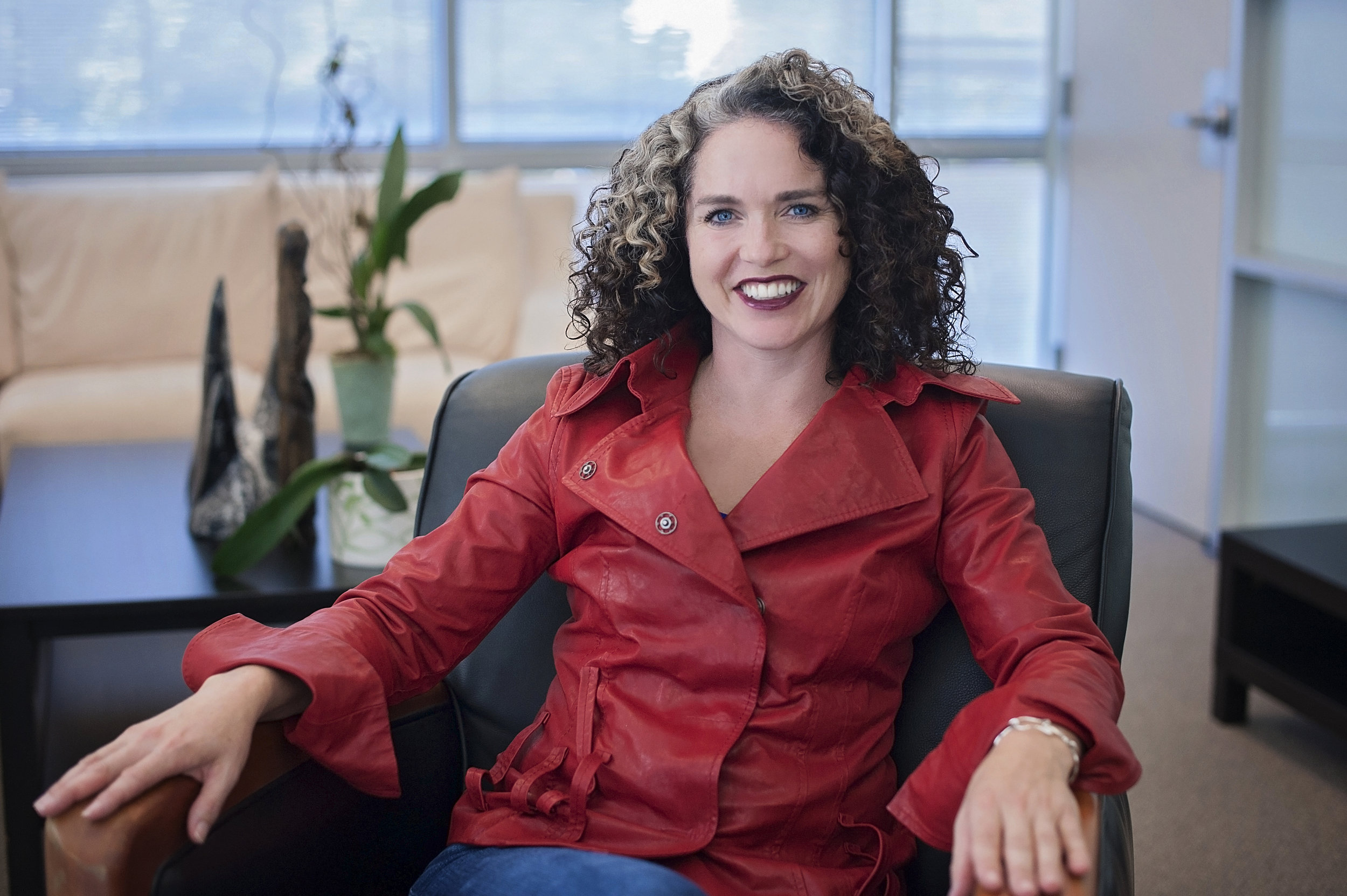Echo Capital Group CEO Sabrina Naim talks about her family-run business, diving into VC from a unique perspective, and promoting philanthropy to millionaires and non-millionaires alike.
Why venture capital? What led you to become involved in this industry?
Following my experience in Transom Family Services [her first company, which provided wealth management and succession consultation to family-owned businesses], I decided to take that knowledge and bring it back to my family business. I played a role in developing a new division of the business to seek out acquisition opportunities in the branded packaged food space (my family’s business was in the food space for nearly 30 years before selling to Nestle in 2002). This was considered more private-equity-style investing as we were (and still are) doing full buyouts of later-stage businesses.
The more I worked in this realm, the more I saw an opportunity to make a splash in the investment space at an earlier stage. Traveling to investment conferences around the country, I found that I was often one of a few women in the room and very often the youngest person in the room, which I felt gave me a unique perspective to comment on consumer trends through my and my peers’ experiences.
At the time, everyone was trying to figure out how to capture this significant millennial consumer but the dialogue felt wrong to me. I felt I could tap into the desires and behaviors of my peers in a unique way and invest in young, up-and-coming businesses that were answering the call of this large generation of consumers who were making daily purchases through a different lens of values.
What do you think makes the era of millennials so significant? Why is it important for Echo to have a team of millennial entrepreneurs and how does this reflect your ideal audience?
The millennial generation has a very unique set of shared values that inform our consumer purchasing behavior. Generally, we feel strongly that we are part of a global community, we care deeply about things that are happening in other communities and countries and want to feel as though we are making an impact in some way. We are more health conscious and environment conscious and demand transparency and a genuine story in our ingredients, messaging, and brands.
When I created Echo Capital Group, I decided it was important to develop a footprint of how I make decisions of everyday consumer purchases such as food, beauty supplies, apparel, footwear, home goods, etc. How many of these items was I blindly brand loyal to? What would make me switch from a familiar and comfortable brand or product to try something new? I developed this footprint of what I believe are shared millennial values and adopted those to purchasing decisions. It was clear to see that these values were moving away from “traditional” consumer decision-making behavior.
Pretty soon, my team and I were meeting young entrepreneurs who not only felt the same way, but were developing products and concepts that seamlessly fit with the lifestyle choices of this demographic. We felt that our peer-to-peer connection matched with our experience in the consumer products space was an extremely valuable package to offer our portfolio companies. We became more than just a capital provider. We became a partner for strategic growth and collaboration, which is how we invest still.
Why did you start the Sabrina Merage Foundation? Expand on your mission statement: “Promoting tolerance and acceptance of diversity through education.”
When I was graduating from college, my grandmother decided she wanted to make a gift to all of her grandchildren in order to start their own philanthropic foundations and become communally involved. This was very unique, as the norm is to see families have one large family foundation with a board of directors who collectively decide on a giving theme and donors.
In this case, we are able to individually pursue projects that are important to us. At that time in my life, I was seeing a great deal of division on college campuses due to people’s beliefs, race, religion, socio-economic status, etc. These clashes were creating larger and larger divides among students who should celebrate the diversity of college life above all.
It became important to me to partner with organizations that promote community, inclusiveness, and education of our differences. I also have a strong connection to my Jewish roots and enjoy partnering with organizations that promote togetherness, heritage, and community resilience.
What are you most proud of? And what has been the biggest challenge you’ve faced and how did you push through?
I am extremely proud to have taken a concept to fruition and can say now that I have a strong team who believe wholeheartedly in this vision. Several years ago, I was jotting thoughts down in a notebook. Today, we have eight (going on nine) strong portfolio companies that we are proud to partner with. We serve on boards, offer valuable strategic insight and direction, and lend out the experience of a seasoned team.
This came with no shortage of challenges and we will continue to face them in the future. We invest carefully and thoughtfully but it is true that not all of our investments will be a success. That is simply the nature of our business. But I’m extremely proud in what we accomplish each day in empowering entrepreneurs to bring their vision to a reality.
My next big challenge is the ever-present balancing act of motherhood and work. My baby girl is only three months old so I’ll get back to you on that one but so far, so good!
What advice would you give women entrepreneurs interested in starting their own businesses? How about getting involved in philanthropy?
Women have always faced different challenges than man in the workplace. And although I could write a book about the roadblocks and double standards that women are still facing everyday, I will say that this is the golden age of celebrating innovative and successful women. Never before have we, as a society, put so much focus on the incredible feats that female entrepreneurs, executives, and philanthropists are accomplishing.
There are investment firms who will only invest in female-led businesses. There are publications (like this one) and organizations that exist for the sole purpose of celebrating female success stories.
With that in mind, I encourage female entrepreneurs to ride the wave, so to speak, of the incredibly talented women that have paved the way for new blood to come onto the scene and make a real impact.
Yes, education, focus, and hard work are essential pieces to this picture. But surrounding yourself with people who support your dreams and ambition and encourage your drive for excellence everyday, that is the real recipe for success.
As for getting involved in philanthropy, I have found that that word seems very daunting to people. As if you must be a millionaire to be philanthropic. The truth is, it starts with understanding the value of giving your time and dollars to something you care about. Those dollars might be significant to you, which is defined differently for everyone. I have friends who do anything from packing Thanksgiving meals for the homeless every year, to giving $250 to a cancer research organization, to giving hundreds of thousands and hours of their time to board service. These are all incredibly philanthropic and the idea is incorporating something meaningfully philanthropic in your life early on. This brings meaning and purpose in a very different way than your work life will.
What’s next for you?
For now, I am happy to be spending my time building Echo Capital Group, working on my foundation, and most importantly, raising my baby daughter. There are always new projects that arise and I am excited and ready for those when the time comes.












